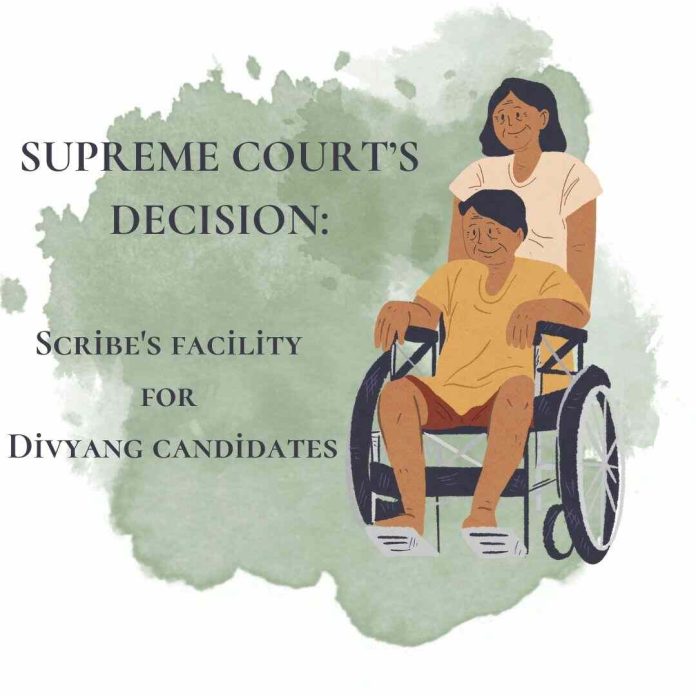Recently, the Supreme Court issued a historic decision on person with disability. The Supreme Court stated that all person with disability, irrespective of their ability to meet the benchmark requirements or not, can from this point on use scribes during exams. This decision has brought relief especially to those students who face difficulty in writing exams due to their physical or mental condition. This decision not only promotes inclusivity but is an important step towards ensuring equal educational opportunities.
Background of Supreme Court verdict on person with disability
The main objective of this decision is to ensure that no Divyang student is deprived of educational opportunities due to his disability. Earlier, only those candidates who fell under the definition of ‘benchmark disability’ were entitled to the facility of scribes. This definition excluded many students who were actually entitled to this facility.
The major petition behind this order came from students who face difficulty in exams but did not meet the benchmark disability criteria. The Supreme Court, while hearing this petition, acknowledged the importance of the right to education and equal opportunities.
Key points of the verdict on person with disability
Benefit to all Divyang candidates: Now students with any kind of disability, whether they suffer from neurological, physical or mental disability, can use scribes.
Benchmark disability requirement abolished: Earlier candidates were required to certify 40% or more disability, but now this condition has been removed.
Guarantee of equal opportunities: This decision is in line with the constitutional principles of right to education and equality.
Applicable to government and private institutions: The following rule will be applicable to both government and private institution exams.
Impacts of this decision
Improved academic inclusivity: This decision will ensure equality in the field of education for students with disabilities. Now those students who used to feel helpless due to their disability will also be able to appear in examinations with confidence.
Positive social change: This decision will promote a positive attitude towards persons with disabilities in the society and increase awareness about their rights.
Simplification in application process: Now candidates with disabilities will not have to go through complex certification processes to avail the facility of scribes. This will reduce the mental pressure of the students.
Possible challenges and solutions
Availability of scribes: With more students using scribes, the demand for scribes may increase. The institutes should create a list of qualified scribes for this objective.
Possibility of misuse: To prevent misuse of this facility, monitoring at examination centers can be tightened and guidelines can be set for the selection of scribes.
Need for Training: To maintain fairness and effectiveness in the examination Special training programs should be organized for both exam administrators and scribes.
Conclusion
This decision of the Supreme Court on person with disability is undoubtedly a historic step that further strengthens the rights of persons with disabilities. This decision will not only promote educational equality but will also help in building a more inclusive society. This order ensures that no student will be denied educational opportunities due to their disability.
Also Read: Backward Classes Welfare Department

